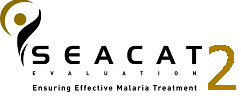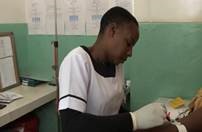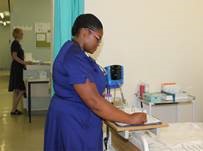
PRIM01 trial- During 2017-2018 We conducted a clinical trial at Komatipoort and Naas Clinics in Mpumalanga which investigated the haemotological safety of single low dose Primaquine for malaria transmission blocking. Safety, tolerability, CYP2D6 and G6PD variant data from this study support the deployment of the WHO-recommended single low dose primaquine without G6PD testing to advance malaria elimination in South African districts with low-intensity residual transmission. Indiviual participant data from this trial has also contributed to two WorldWide Antimalarial Resistance Network (WWARN) indiviual participant data (IPD) meta-analyses. See the publication here.

CCOAT started its journey as the South East African Combination Antimalarial Treatment initiative, conducting malarial treatment efficacy studies in collaboration with the Malaria Programmes in South Africa, eSwatini and Mozambique within the Lubombo Spatial Development Initiative (LSDI). These used an adapted WHO Treatment Efficacy Study protocol

Pregnant women with HIV and malaria are at risk of pregnancy loss, preterm delivery, and slow foetal growth. While antiretorvirals and antimalarials are available, there are questions about appropriate combinations and doses. CCOAT therefore conducted a study in 2019 to understand whether the malaria preventive treatment, dihydroartemisinin-piperaquine (DP), and the HIV treatment, dolutegravir-based ART, impacted each other’s blood levels in pregnant women living with HIV. The study was conducted at an established trial site with a newly formed trial team using the WWARN Malaria Clinical Trial Toolkit, managed by CCOAT. The site PI said that “The resources from the Toolkit have really been instrumental in helping us prepare and set up our EDCTP-funded pharmacokinetic trial in Malawi”

Building on the foundations of malaria treatment efficacy trials, CCOAT conducted drug-drug interaction trials to explore the interactions between antimalarials and antiretrovirals (nevirapine and lopinavir/ritonavir) in malaria negative, HIV positive people. In addition, we conducted a Phase I healthy volunteer study to investigate safety, tolerability and pharmacokinetics of co-administered single doses of a novel antimalarial agent, OZ439, and a potential partner antimalarial, mefloquine.

By 2013 CCOAT had conducted numerous field studies in the malaria regions of Southern Africa and drug-drug interaction trials in non-malaria healthy or HIV positive volunteers at UCT in Cape Town. In 2014, a compound discovered by an international team led by Prof Kelly Chibale at UCT and the Medicines for Malaria Venture (MMV) became the first new antimalarial medicine to enter phase I human studies in Africa. CCOAT was selected as the group to lead the first-in-human trial for MMV048 which has the potential for a single dose orally administered cure with a long duration of action for the treatment of acute uncomplicated malaria, effective against resistant strains and across the entire parasite life cycle, The CCOAT team led the development of the new UCT Clinical Research Centre Phase 1 facility, integrating internationally acceptable standards and contributing to building capability for clinical pharmacology research in Sub-Saharan Africa

Having identified that the value of antimalarial safety data collected globally was limited by the heterogeneity of methods used to elicit data on side effects and non-study medicine use from study participants, CCOAT conducted primary research, a survey, Delphi study and Cochrane Review to inform the development of harmonised methods for collecting these data. This type of “research about research” has led to CCOAT leading the Global Health Working Group of the Trials Methodology Research Partnership, in collaboration with Global Health Methodology Research, to support others in low and middle-income countries to question the way trials are designed, conducted, analysed and reported

CCOAT’s antimalarial-antiretroviral drug interaction trials and antimalarial drug safety methodology research were conducted within a $40M grant from the Bill and Melinda Gates Foundation to the ACT Consortium, 25 research studies in 10 countries in Africa and Asia that answered key questions on optimising the delivery of artemisinin-based combination therapy (ACT) - the first-line treatment recommended by the WHO for malaria.
